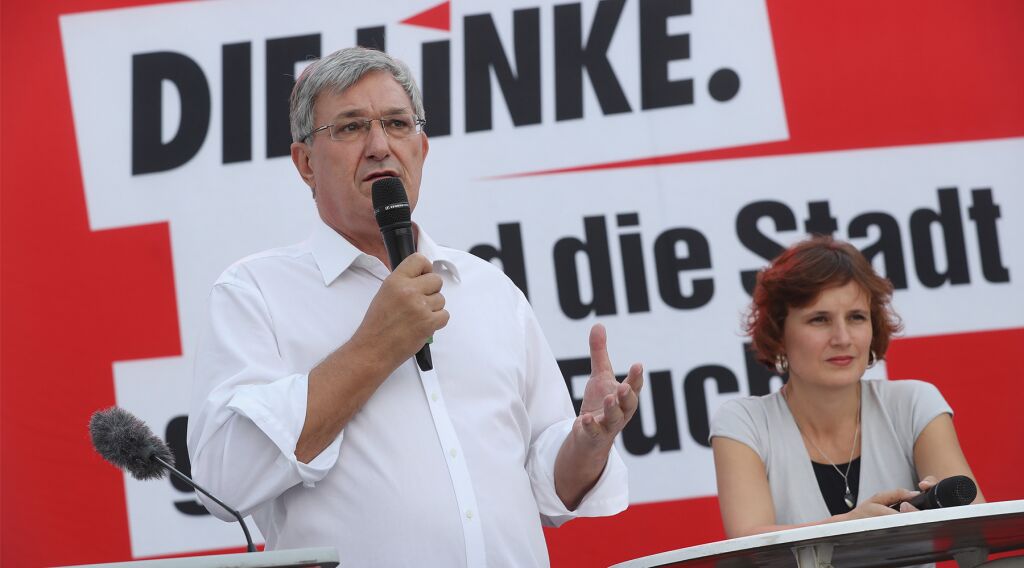
Another Merkel Defeat Points to an Ungovernable Germany
German Chancellor Angela Merkel suffered yet another defeat, this time in regional elections in Berlin on September 18. But the results point to far more than trouble for Ms. Merkel; they point to the wholesale rejection of Germany’s mainstream political parties.
Ms. Merkel’s Christian Democratic Union (cdu) received its lowest ever share of the vote in Berlin, with 17.6 percent. Most strikingly, fringe right-wing party Alternative for Germany (AfD) received 14.2 percent of the vote and the Left Party won 15.6 percent.
The AfD is well known for its anti-immigration rhetoric; it is often smeared as being far-right. Regardless of the accuracy of that label, it is outside the mainstream German political system. The vast majority of Germany’s establishment considers the AfD beyond the pale and refuses to work with it in any way.
But what has been lost in the panic over the AfD’s popularity is the rise of the Left Party. The Left is probably more extreme left than the AfD is right. Some of its members—in Bavaria, the entire party—are under government surveillance over fears that it wants to overthrow the state. It is the successor of the Communist party, Socialist Unity Party, that ruled East Germany during the Cold War.
The Socialist Unity Party ran the infamous Stasi secret police and backed the Soviet Union—the empire that slips just behind Mao Zedong’s China in the list of most murderous regimes of all time. In like manner, the Left Party wants to end nato and big businesses. It takes busts of Karl Marx on the campaign trail. After an interview with one of its leaders, even the Charlemagne columnist for the left-leaning Economist magazine wrote, “I found myself praying that these people never get anywhere near power.”
Until 2014, no mainstream party would form a coalition with the Left. Eventually, the surge in its popularity tempted the center-left Social Democratic Party (spd) and the Green Party into a coalition, but the spd has promised not to work with them on a federal level.
Combined, these extreme-left- and ring-wing parties received nearly a third of the vote. The fact that one in three Germans is so fed up with the current administration that he is willing to vote for these parties shows the extreme lack of faith Germans hold in the traditional established parties.
Meanwhile, the two mainstream parties, the cdu and spd, received less than 40 percent of the vote. Most people voted for parties outside of the traditional mainstream—albeit many voted for parties less extreme than the AfD and Left Party.
“Berlin does not represent all of Germany, but it is the capital,” wrote Geopolitical Futures founder George Friedman. “Therefore, the fact that the mainstream parties were together repudiated by the majority of voters is significant. In Berlin at least, the German political system has shattered.” He continued:
If the Berlin results are replicated on a national level, Germany is going to become ungovernable. This assumes that Berlin is a leading indicator of party support, that in a national election the establishment parties wouldn’t get more votes to avoid this outcome, and that Germany’s political and economic conditions won’t improve. Having said all that, this result, taken at face value, indicates that the European foundation, Germany, is moving toward a major political crisis that will resonate.
Friedman pointed to considerable evidence that Germany is heading toward a financial crisis.
“When you consider the fact that the results of the Berlin election look like someone smashed a plate on the floor—with support for the various parties fragmenting into pieces—it is clear that something is being felt on the ground,” he warned. “The strength of the left-wing parties is not that they are pro-migration. That doesn’t help them much, if at all. Their strength comes from their anti-austerity stance. Voters believe that anti-austerity parties know the current situation can’t continue. They also believe that, at the very least, these parties can’t be worse than the mainstream ones.”
These elections certainly point to the difficulties Ms. Merkel faces in continuing as Germany’s chancellor. But this is about much more than one individual’s career. A crisis is building, and as Friedman wrote, Germany is, right now, “the pivot of the world.”
“If Germany weakens or destabilizes, Europe destabilizes, and it is not too extreme to say that if Europe destabilizes, the world can as well,” he wrote. The local elections in Berlin could have global consequences.
For more on the challenges facing Germany’s political system, read Trumpet columnist Brad Macdonald’s recent article, “Germany, Political Crisis and Superman.”
